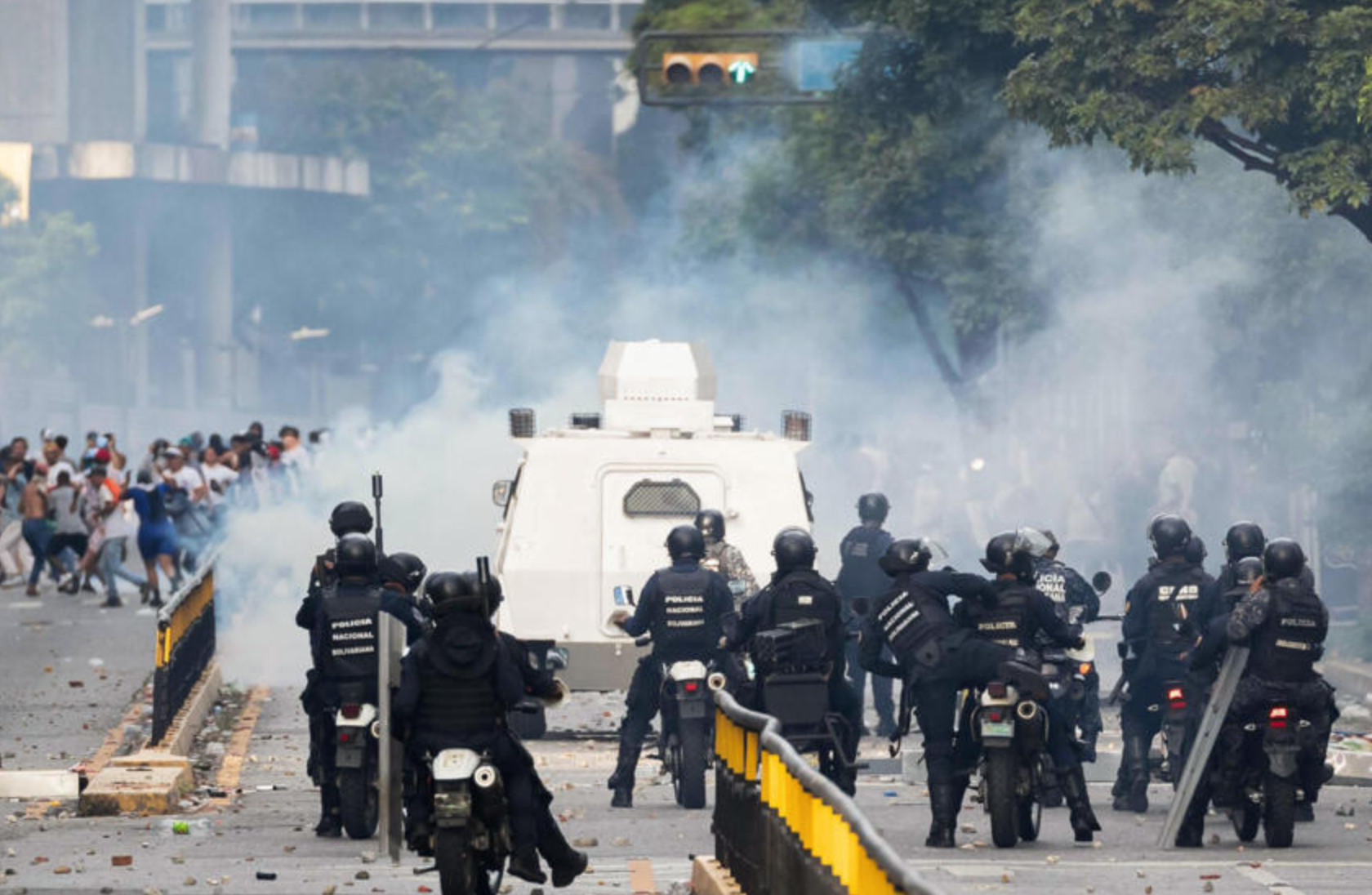The most pessimistic forecasts were fulfilled: despite the 22 points of advantage the polls gave on average to the Venezuelan opposition, institutional Chavism has proclaimed Maduro’s victory by 51.2% of the votes cast. Many of us made these dark predictions based on the manner used by Maduro to announce his acceptance of the results: he did not say that he would respect the will of the citizens expressed in the ballot boxes, but that he would abide by what the electoral authority, the National Electoral Council, well known for its Chavista militancy, would dictate. It was a premonitory announcement.
Thus, the most toxic logic has been confirmed: the Maduro regime is not in a position to give up power, whatever happens in Venezuela. It simply cannot. So great is the burden of the outrages committed, of the moral and human rights violations, that those in charge of the system are convinced that abandoning power would mean exposing themselves to an unbearable rain of lawsuits. In fact, a good part of them are convinced that they would have to leave the country if Chavism ceased to rule Venezuela.
But this extreme conviction makes the option advocated by some allies of Chavism and a good number of pragmatists quite unfeasible: that the abandonment of power by Maduro and his followers would take place after a negotiation that would offer guarantees that the Chavist leaders would not suffer serious reprisals.
Once this option is discarded, there is only one scenario left: the resistance with a firm hand, ignoring any minimally reasonable criticism, or, in other words, the flight forward, toward a dictatorial hardening of the regime. It is on this path that cracks may appear in the authoritarian regime. Certainly, the international pressure, requesting the knowledge of the electoral records, is a powerful pressure factor, but it will not solve the dramatic situation if the regime remains strongly cohesive. It will be the need of Maduro and his squires to harden their government, which may provoke internal contradictions that may weaken its consistency.
In any case, it is important that the democratic gaze does not focus only on the felony perpetrated. It is necessary to widen the lens to observe the accomplices that serve as internal and external points of support for the Maduro regime. On the other hand, the list is not so long if we are talking about the most prominent accomplices.
First, there are the countries that have recognized the fraudulent results on that same night. There is a group motivated by geopolitical factors, in the style of the old Cold War: China and Russia, in the first place. And then, the complicity of other ideologically allied regimes: Cuba, Nicaragua and Bolivia, to which Honduras is now added, largely for internal reasons. It is important to highlight the case of Bolivia, since it shows something that has been the subject of debate on the Latin American left: the Bolivian government and the party that supports it, the MAS, do not belong to the democratic left. The position of the Brazilian and Chilean governments, and more timidly that of Colombia, in demanding an electoral review, establishes the necessary distance in this respect.
Indeed, Maduro’s response has been consistent with that flight toward more authoritarian forms: he has withdrawn Venezuelan diplomatic personnel from seven Latin American countries, Argentina, Chile, Costa Rica, Panama, Peru, Dominican Republic and Uruguay, for not recognizing his victory and questioning the electoral result.
And finally, mention must be made of the accomplices of the Chavista regime who, for various reasons, have given cover to the Maduro government and its electoral fraud. Among them stands out the Spanish socialist leader, Rodríguez Zapatero, who has refused to join the international demand that the minutes of the electoral results be made public. Zapatero’s refusal is all the more remarkable because other Maduro supporters, also invited by the Venezuelan government as external observers, such as former presidents Leonel Fernandez of the Dominican Republic and Ernesto Semper of Colombia, have joined the international demand to know all the tally sheets.
The argument used by Zapatero so far, in order not to dissociate himself from the Chavista regime, has been that it is necessary to establish options that favor negotiation between the regime and the opposition. However, this argument is today an insult or a chimera. By ideological conviction or political stupidity, Zapatero (one of the most ardent allies of Pedro Sanchez) is today the symbol of complicity with a dictatorship regime.
The position adopted regarding the Venezuelan crisis has thus become the acid test for the Latin American left, allowing differentiation between its democratic consistency and its old authoritarian spirit. It does not matter if that position is influenced by bitter internal experiences, as in the case of Honduras; the subordination of respect for the exercise of democracy to other interests or circumstances also implicates those who accept such gross electoral fraud.











